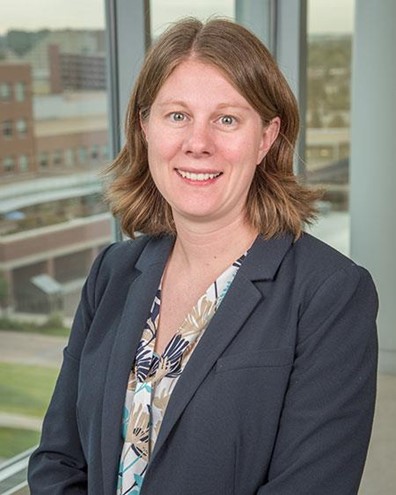Request for Applications
2025-2027 awards
The 2025 FSR Pilot Grant is the latest of FSR’s Pilot Grant program, which began in 2018. This opportunity allows researchers to apply with an existing or new project and aims to support smaller scale or pilot research projects, which can be supported either singularly by FSR or through a partnership with additional funders. Each proposal should feature a $100,000 project over a two-year period.
Applicants must submit a Letter of Intent to be considered for funding. You’ll be notified by the end of July as to whether or not you’re invited to submit a full grant proposal. Full applications will not be accepted unless notification of invitation has been received from FSR.
Pilot Grant Eligibility Criteria:
- Proposals for the FSR Pilot Grant must be for research in the sarcoidosis space.
- Proposals for research studies focused on areas other than sarcoidosis are not eligible.
- Principal Investigators (PIs), Co-PIs, and Sub-Is, must submit bio-sketches in the NIH format (or equivalent international formats) as well as any letters of support from anyone collaborating on the proposal.
- The PI must be affiliated with a college, university, or a non-profit research facility that is willing to serve as the administering organization if the grant is awarded.
- Proposals are accepted from the U.S. and internationally, however all proposals must be submitted in English and budgets must be proposed in U.S. Dollars.
The Foundation for Sarcoidosis Research does not award grants directly to individuals.
Restrictions
- The budget for the FSR Pilot Grant is limited to $100,000 and may not include indirect costs.
- Budgets that include research lab equipment that utilizes over 50% of the proposed budget must include justification and a description of how that equipment will be used in the post-grant period.
- All awardees must submit bi-annual progress reports to FSR. Bi-annual reports are due at the end of each 6-month period while the grant period is active.
- Projects proposed may not be longer than two years in duration.
- Previous Pilot Grant awardees are eligible to apply once the previous grant is concluded.
- PIs and Co-PIs may not submit more than one application for this program in a given cycle.
FSR Research Agenda
The Foundation for Sarcoidosis Research (FSR) has undertaken a comprehensive process to develop a new research agenda that will guide its funding priorities and strategic direction. FSR employed a rigorous four-stage process to develop its research priorities, including conducting a literature review; hosting a brainstorming workshop with key stakeholders including physicians, patients, and caregivers; conducting direct stakeholder interviews; and facilitating a quantitative prioritization survey of the FSR community. Read more about the FSR Research Agenda here.
Through this process, FSR established five primary research priorities and six research values that should guide all funded research.
Research Priorities
Successful research proposals will need to be aligned with one or more of the following priorities:
Standardization of Patient-Centered Outcomes
Research that identifies and standardizes outcome measures and endpoints that matter to patients.
Examples:
- Development of validated outcome measures that reflect patient priorities (including clinical outcomes as well as functional or patient reported outcomes like fatigue, quality of life, and other key symptoms)
- Creation of standardized clinical trial endpoints that reflect meaningful improvements in patient function and well-being
- Establishment of consensus definitions for disease activity and response to treatment
Biomarkers for Disease Prognosis/Progression
Research that identifies or defines biomarkers for disease prognosis or progression.
Examples:
- Identification of molecular signatures that predict disease course
- Development of biomarkers that can identify likelihood of progression (e.g., from chronic to acute/severe)
Diagnostic Innovation
Research that discovers or improves upon techniques for diagnosing the disease.
Examples:
- Development of novel diagnostic algorithms
- Validation of new imaging techniques for early detection
- Creation of diagnostic tools for specific organ involvement
- Identification and validation of a reliable biomarker to facilitate accurate diagnosis
Quality of Patient Care
Research that contributes to the improvement of consistency and quality of patient care.
Examples:
- Development of evidence-based treatment guidelines
- Creation of care coordination protocols
- Implementation of standardized assessment tools
Treatment Monitoring
Research that identifies or defines biomarkers for monitoring treatment effects.
Examples:
- Development of imaging biomarkers that track disease progression
- Validation of blood-based markers for monitoring disease activity
- Development of validated biomarkers for treatment response
- Creation of tools to predict treatment efficacy
- Validation of monitoring protocols
Letter of Intent Instructions
1. Proposals will be blinded for review. Please provide the following information on the cover sheet only and ensure no identifying information is provided in the proposal.
a. Investigator and research team names
b. Institution
2. Proposals should be no longer than two pages in length, single-spaced, utilizing 12-point font and 1-inch margins.
3. Proposals should include:
a. Project Title and Summary
b. Brief description of project and research focus
c. Primary objectives of the project
d. Methodology
e. Alignment with the FSR Research Agenda priorities and values
i. Please indicate the research priority your project most directly addresses
ii. Provide justification for the alignment of your proposal
**Submit your LOI in PDF format to research@stopsarcoidosis.org**
Research Values
Where appropriate and/or possible, all FSR-funded research should demonstrate the following characteristics:
• High-Quality Data – Research must be supported by robust methodology and data collection, including well-designed study protocols, appropriate statistical power and rigorous data collection and analysis methods.
• Health Equity Focus – Research should address the needs of underserved, marginalized, historically disadvantaged or vulnerable populations, demonstrated through inclusive recruitment strategies, analysis of disparities in care, or targeted interventions for underserved groups.
• Real-World Evidence – Research should leverage real-world data and evidence when appropriate, including integration of registry data, real-world effectiveness studies, and/or leveraging practice-based research networks.
• Patient Voice Integration – Research should reflect and capture patient perspectives and priorities by engaging patients in study design, through the collection of patient experience data and/or development of patient-driven research questions.
• Investigator Development – Research should foster the growth of independent sarcoidosis investigators including mentorship components, career development opportunities and research capacity building.
• Research Leverage – Research should build upon and connect with existing research efforts through cross-institutional collaborations, by building on previous findings, or through shared resources and data
Applications will be evaluated in the following areas:
- Significance: the importance and potential impact of the proposed research on the field of cardiac sarcoidosis
- Approach: the rigor and feasibility of the methods proposed to achieve the project’s goals
- Alignment with FSR’s Research Agenda Priorities and Values: strength of alignment with investigator-identified primary priority
2025 Timeline for Applicants
June 2025 – Applications open
June 30, 2025 – Deadline for LOIs
July 2025 – Review period
Late July 2025 – Invitations to submit full applications sent
September 15, 2025 – Deadline for full proposals
September-October 2025 – Review period
November 2025 – Awardee Notification
Reports and payments
- Bi-annual Reports: The grantee will send a bi-annual report of activities and financial reports.
- Grant fund payments will be contingent on and align with the bi-annual report schedule.
- Annual Report and Evaluation: All grantees may be asked to participate in a patient-friendly colloquium reporting on the experience, research outcomes, and grant preparation and application process.
Any resulting publications or presentations must acknowledge the support of the host institution and FSR. FSR should be sent a copy of all resulting publications in PDF format.
If you have any questions, please contact research@stopsarcoidosis.org.
Learn about upcoming funding opportunities by signing up for FSR’s Physician Investigator Newsletter here.
Watch FSR’s Cardiac and Pilot Grant Writing Webinar
Click here to watch the FSR Grant Writing Webinar with Dr. Lisa Maier.
Click here to watch a grant writing webinar with Dr. Wonder Drake focused on how to submit a successful Pilot Grant proposal.
2023 Pilot Grant Awardee:

Dr. Thomas El Jammal
Project: TBK1 Function in Sarcoidosis: How Genetic Variant Alters Mitochondrial Homeostasis
Dr. Thomas El Jammal (MD) is an early career clinician in the internal medicine department at the Hôpital de la Croix Rousse in Lyon, France, a French expertise center for sarcoidosis (especially ocular sarcoidosis) and various inflammatory eye disorders (sarcoid uveitis, Behçet’s uveitis, HLA-B27 uveitis, Vogt-Koyanagi-Harada’s disease, etc.). Dr. Thomas El Jammal is also currently pursuing a PhD program working on mitochondrial function and dynamics in sarcoidosis in the Laboratory of Tissular Biology and Therapeutic Engineering, in Lyon, France. Dr. El Jammal’s project will seek to combine both clinical approach and fundamental research to improve sarcoidosis patient quality of life.
“We are honored by the FSR’s support for our scientific project. We believe that a better understanding of the biological mechanisms of cellular stress regulation is a crucial step towards explaining the pathophysiology of inflammatory diseases involving a host-environment interface, such as sarcoidosis. This grant will enable us to reinforce a brand-new pilot project based on recent omics data collected with the help of the Groupe Sarcoïdose Francophone, a French national network of practitioners and scientists involved in clinical and fundamental research in the field of sarcoidosis. Thanks to the FSR financial support we will decipher the molecular pathways altered in the context of familial sarcoidosis associated to genetic alteration.”
2022 Pilot Grant Awardees:

Dr. Alicia Gerke, The University of Iowa
- Airway Epithelial Response to Residential Antigens in Mild and Severe Sarcoidosis
“We are extremely grateful for the support of the FSR as we try to determine the underlying mechanisms that lead to severe sarcoidosis. We hope that by doing this, we can modify either the environment or the immune response to improve quality of life and maintain organ function in patients afflicted with chronic sarcoidosis.”

- Biomarkers of Inflammation and Neuronal Injury with Associated Clinical Outcome Measures in Neurosarcoidosis: A Pilot Study
“A reliable biomarker for the diagnosis and assessment of disease progression is lacking in neurosarcoidosis. At the University of Colorado, we are excited to have an opportunity to advance the field by helping to identify surrogate biomarkers that may correlate to clinical outcomes measures, thus defining a biomarker that allows for following disease progression over time.”
Read the FSR PIC newsletter for announcements for more upcoming grant opportunities.
Previous awardees:
2018 Cycle 1 Award Winner: Dr. Girish Bathla, University of Iowa: Vessel Wall Imagining in Neurosarcoidosis: Underrecognized, Underdiagnosed and Undertreated
2018 Cycle 2 Award Winner: Dr. Richard Silver, Case Western Reserve University: The Role of TCR/TLR2 Co-stimulation in Resolution vs. Progression of Pulmonary Sarcoidosis.
2019 Cycle 1 Award Winners: Dr. Nisha Gilotra, Johns Hopkins Medicine: Immunological and clinical gender-specific differences in cardiac sarcoidosis; Dr. Wonder Drake,Vanderbilt University School of Medicine: What is the clinical impact of IL-6 blockade on sarcoidosis pulmonary fibrosis?
2019 Cycle 2 Award Winner: Dr. Rafael Perez, Thomas Jefferson University: Lung Tissue Remodeling in Sarcoidosis: Relationship to Clinical Phenotype and Disease Severity and Progression.
2020 Cycle 1 Award Winner: Dr. Umesh Deshmukh, Oklahoma Medical Research Foundation: Humanized Mouse Model for Sarcoidosis
2021 Award Winner: Maneesh Bhargava MD, PhD, Associate Professor, Pulmonary, Allergy, Critical Care and Sleep Medicine: Comprehensive Assessment of Signal Transduction Pathways in Sarcoidosis.
2021 Award Winner: Peter H. S. Sporn, MD, Director, Northwestern Sarcoidosis Center of Excellence, Professor of Medicine, Cell and Developmental Biology, and Medical Education, at Northwestern University Feinberg School of Medicine: Assessment of the Immune Response to SARS-COV2 Vaccination in Sarcoidosis.
